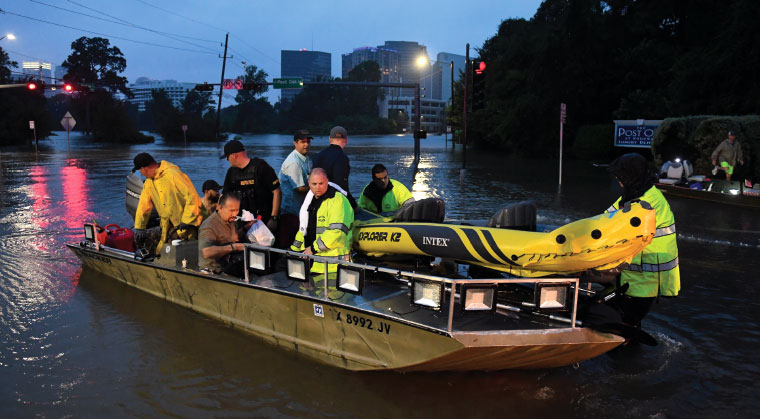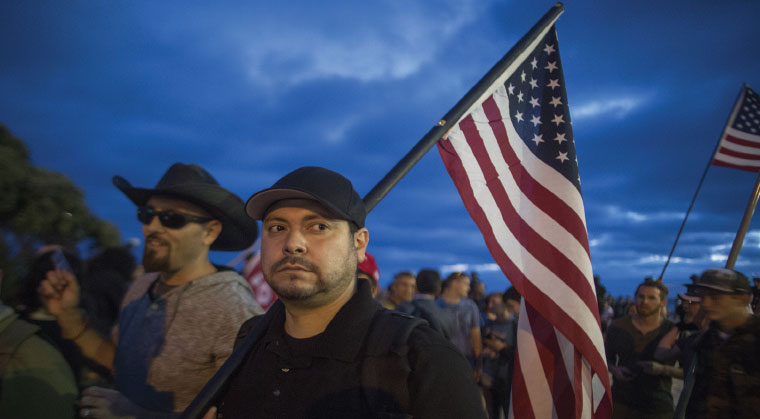Miami Wages War On Zika


Air and Ground Forces deployed versus Mosquitoes
W
illiam Talbert III is sunning himself by his backyard pool in Miami’s fashionable Coconut Grove neighborhood on a typical summer Sunday afternoon with highs in the 90s and humidity to match.
It’s two days after the Centers for Disease Control (CDC) reported five new Zika cases in Miami Beach and advised pregnant women to avoid a one-and-a-half-square-mile section of the area where the infected people lived or traveled. Earlier this month the CDC similarly warned visitors to avoid a one-square-mile section of Wynwood in downtown Miami.
Talbert president and CEO of the Greater Miami Convention and Visitors Bureau may have been enjoying his Sunday off but he clearly understands the potential for damage to the region’s $24 billion a year tourism industry and is not the least bit complacent about the health threat. “There are two things I’ve always had and always will have in my backyard: sunscreen and bug spray. That’s Miami and that’s Florida ” Talbert says.
Miami’s subtropical climate is hospitable to a wide variety of mosquitoes but a species that has apparently reached the mainland US from South America carrying the Zika virus has become the number one health scare of 2016.
Only 20% of the people bitten by a mosquito bearing the virus will become ill. Most symptoms appear within seven to ten days and are limited to a rash fever joint pain or red eyes. The risks are much higher for pregnant women. Medical evidence suggesting Zika is responsible for an increased risk of birth defects prompted the World Health Organization to declare the Zika virus outbreak a public health emergency of international concern back in February.
Since then some 47 different states have reported close to 2000 Zika cases. Since mosquitoes breed in standing water the Miami area is particularly vulnerable as heavy rainfall often leads to water pooling along its flat terrain.
“I can tell you that we have been prepared since February for this to happen at some point because of our proximity to Latin America and the numbers of tourists that come here” says Miami Beach Commissioner Michael Grieco.
The county not the city carries the primary responsibility for mosquito control. Aerial spraying was effective in containing the area of contagion in Wynwood. That tactic is out of the question in Miami Beach due to the preponderance of highrises and brisk ocean breezes. So the county ordered an aggressive and targeted “ground game” against mosquitoes over Shabbos spraying the zone known as South Beach between 8th and 28th Streets.
The Hebrew Academy of Greater Miami and most of Miami Beach’s Chabad institutions are located within that zone.
Despite the scare the new school year opened on schedule Monday morning in Florida.
Officials advised the estimated 7600 schoolchildren in the two affected zones to wear long sleeves and pants and handed out protective sets of clothing to children who didn’t have them. The Miami-Dade superintendent of schools declined to delay the start of the school year or relocate the schoolchildren.
Over the weekend inspectors from the Miami-Dade Mosquito Control (MDMC) department were working overtime to hunt for both adult mosquitoes and mosquito breeding sites.
While the CDC is warning pregnant women to avoid affected areas it has not expanded that advisory to pregnant women living in or near the vicinity. In a July 29th advisory the CDC did recommend that all pregnant women in the United States and US territories be assessed for possible Zika virus exposure at each prenatal care visit. Those who report signs or symptoms consistent with Zika should be tested for the virus even though there is no known treatment or vaccine. Women with any concerns or questions should consult with a trusted health professional.
However many local citizens are more worried about mosquito control than mosquitoes.
“I’ve had more residents reach out to me about the types of pesticides being used than about the virus itself” Commissioner Grieco says.
Gayle Love senior division director of the Miami-Dade Solid Waste Management Department says inspectors are using a cocktail of insecticides registered by both the EPA and the Florida Department of Agriculture and Consumer Services to reduce mosquitoes’ resistance to any one brand. The EPA says the class of insecticides being used are known as pyrethroids considered safe for public health mosquito control.
Until the CDC gives the all-clear sign health officials say everyone can ensure an ounce of prevention by applying mosquito repellent and remembering that in a hot humid climate such as Miami the more you sweat the more you may need to reapply the repellent.
For someone who sleeps in a room without screens and air-conditioning a strong fan will keep mosquitoes away because their wings are too weak to fly against the current of the fan.
While authorities are optimistic they can lick Zika before the onset of the winter tourist season last week’s spread to the second area in Miami Beach shows there is no guarantee that it won’t spread even further.
For now the impact on the hotel and tourist industry has been marginal. The New York Times retained STR a Tennessee-based analytics company to analyze Miami hotel stays. The company reported that for the week ending August 13 hotel occupancy in Miami was 76% compared to 79.6% the same week last year but some of that small decline could be attributed to the fact that Miami has more hotel rooms than it did in 2015. However the Times also reported data from Expedia.com suggesting that hotels have reduced their rates on package deals by 17% in August compared to June and July of this year and that this August’s prices are 27% lower compared to August 2015.
A number of airlines that fly to Miami are giving travelers the chance to change their reservations if they are concerned about the virus.
Recently chareidi women of childbearing age have consulted with Dr. Reuven Cofsky chief of infectious diseases at Brookdale Hospital Medical Center in Brooklyn before visiting the Miami area.

“Whatever decisions you need to make about travel plans should be informed decisions based on facts not simply based upon feelings” —Miami Beach Commissioner Michael Grieco
Dr. Cofsky says there are no firm statistics yet on how many pregnant women bitten by a Zika-bearing mosquito will contract the virus or what percentage will pass it on to a fetus.
“I told them that with proper precautions which include insect repellent and tzniyusdig dress the risk is very low but not zero.”
In the meantime local governmental officials suggest keeping perspective and a cool head.
Talbert notes that the original warning zone was one square mile. “Now it’s another square mile and half. That’s two and a half square miles out of a county with 2400 square miles” he says.
“I can’t tell people how to think” Commissioner Grieco says. “Whatever decisions you need to make about travel plans should be informed decisions based on facts not simply based upon feelings.”
Oops! We could not locate your form.







